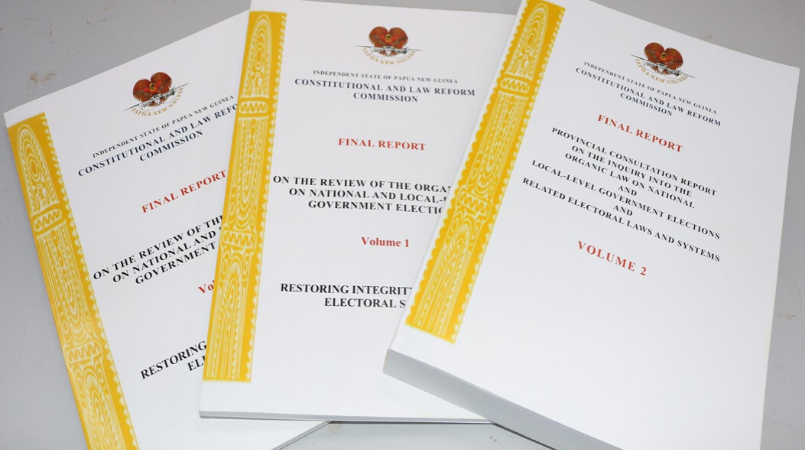
The Constitutional and Law Reform Commission (CLRC) has handed over the final report on the Review of the Organic Law on National and Local Level Government Elections to Prime Minister James Marape.
The report is based on the constitutional directive of the Governor-General to review the Provincial and Local Level Governments Elections.
The review was established in 2018 by the O’Neil-led government directing the CLRC to review the Organic Law and propose legislative reforms aimed at improving the way elections are run in the country.
The review is to ensure that the elections are free and fair where the people are given absolute guarantee of freedom to choose leaders through voting.
Prime Minister Marape said, the members of the agencies have listened to the people, studied and compared the existing electrical system and now it is time our electrical system must be fixed and not later.
He acknowledged that the recommendations contained in the report reflect the views of the people to not only improve the electoral law, systems and processes but more importantly to restore the confidence of the people in the system.
One of the reform proposals in the report is for the government to immediately invest in adapting a biometrics voter registrations by ensuring only one person is registered using their fingerprint against a name-limiting the scope of electrical fraud.
He stressed that having elections is a democratic principle but how to manage the elections including the systems and processes varies from country to country depending on individual, local circumstances and resources.
Prime Minister said he will bring the report before Cabinet for deliberation and then tabled in Parliament at the earliest.
Prime Minister Marape thanked agencies such as the Electrical Commission, the office of Integrity of Political Parties and Candidate Commission, the Department of Prime Minister and NEC, the Department of Justice and Anthony-General, the Department of Provincial and Local Government Affairs and the State Solicitor’s Office to review the law based on the constitution with the people of Papua New Guinea.
